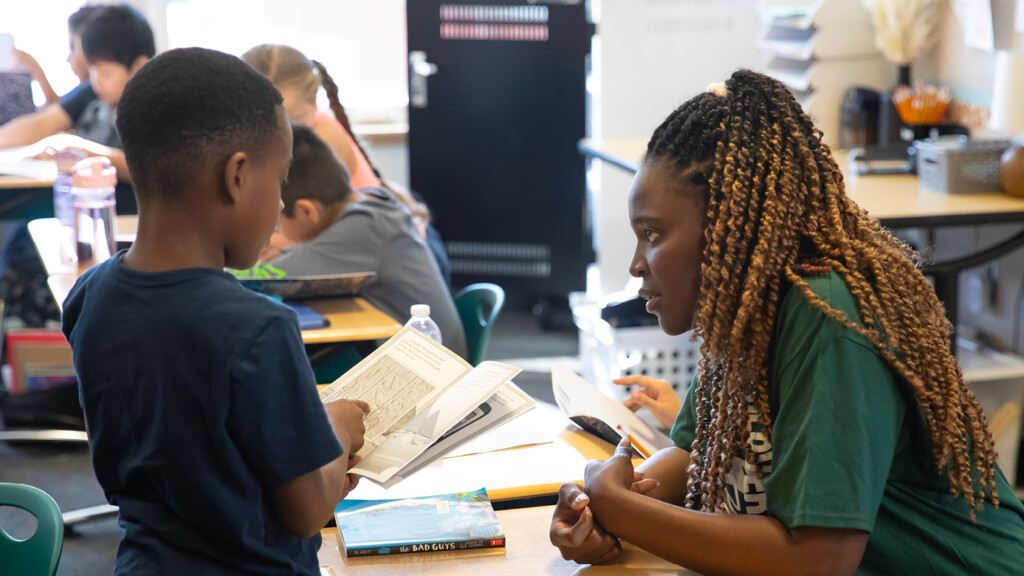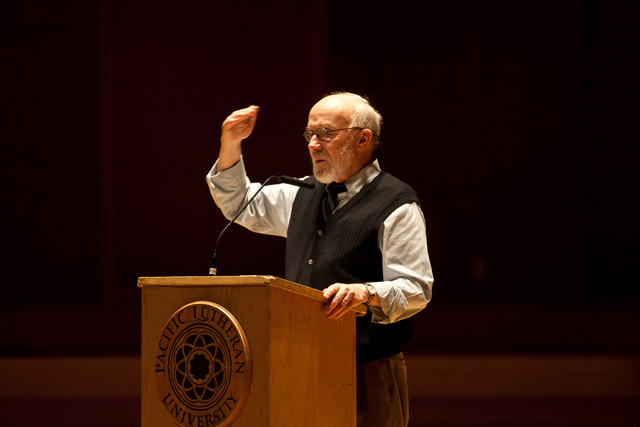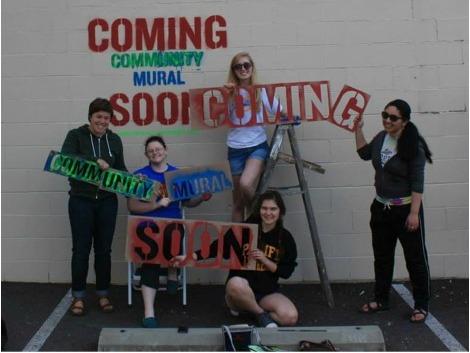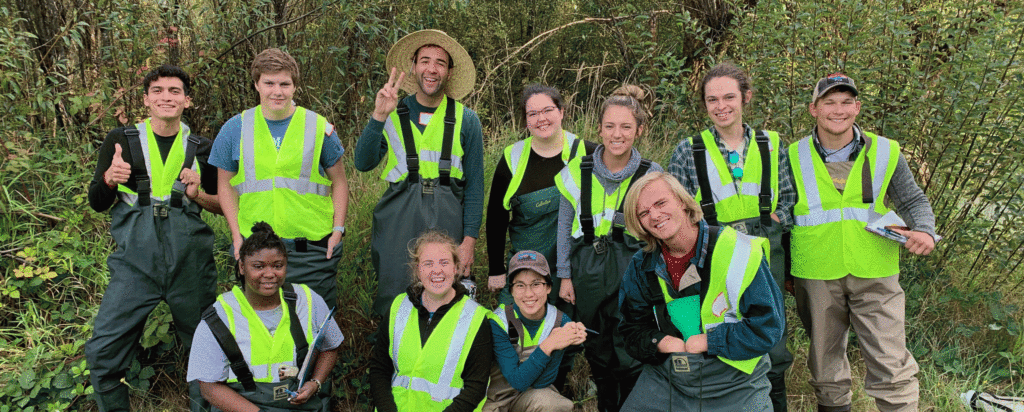Page 19 • (267 results in 0.054 seconds)
-

generosity of an anonymous donor deeply invested in PLU’s commitment to global education and international partnerships, Wells and her peers returned to Namibia as seasoned teachers, four of them national-board certified. Each teaching pair focused their dialogue on a pedagogical issue they faced—such as learner engagement, classroom management or social-emotional learning. But nothing can quite replace seeing these strategies in action, Wells said. When Eva Dumeni, a first-grader teacher at M. H. Greeff
-
Saving the World With a Starship Mathematics professor Daniel Heath’s Starship Design class uses interstellar travel as a lens to focus on issues here on Earth. VIEW STORY International Complexities International affairs and economics analyst Mycal Ford ’12 discusses how he thinks about global policy. VIEW STORY LUTES CENTER COMMUNITY We foster belonging by engaging in meaningful dialogue, seeking authenticity, building connections, and opening minds to see community in new, expansive ways. Centering
-

Anderson University Center, I invite you to join me for our first Listen Forum, focused on community questions and dialogue related to implicit racial and ethnic bias. This forum will begin to answer the questions: What is implicit bias? Why does it matter? What is the impact on belonging? How do we respond? We must understand that our identities–our points of privilege and oppression–can’t be considered in isolation. Gender and race, identity and politics, crime and justice, and family and culture
-
,” Barot said. “We have a dialogue that feeds my work.” Additionally, Barot said his poetry mirrors the mission of the university – a commitment to thoughtful inquiry and social justice. His advice to aspiring writers is to read widely and write a lot. As a young writer he journaled daily. “Process the world through language,” he said. Barot has won awards for his writing before, but the Rilke Prize and the Guggenheim fellowship are on a different level, he said. Barot said it’s been overwhelming (in a
-

community: “I think through opening up a greater dialogue and not being afraid to share your experiences as a first-in-the-family (FIF) student, as well as seeking advice from upperclassmen who are also FIF students, is one of the greatest ways in which a community has been built at PLU. Last month, I went on a FIF retreat for our residence hall wing and the most important thing I took away from that is to realize that you’re not alone in any of your experiences.” 2. Self-care. Self-care isn’t just
-

Department at Oregon State University, presented a lecture entitled, “Speaking Christian: Reclaiming Christian Language,” on Wednesday, November 3, at the 6th Annual David and Marilyn Knutson Lecture. The lectureship brings to campus nationally recognized scholars who creatively work within the historical, scriptural, and theological sources of a living faith tradition, bringing those sources into dialogue with contemporary questions and challenges. Borg argued there are two central features of “common
-

February 9, 2014 Coach Justin Eckstein, left, addresses the Speech and Debate team, including Pam Barker ’14 (behind Eckstein) and David Mooney ’14 (corner of table). (Photo: John Struzenberg / PLU student) You Can’t Argue with Success PLU Speech and Debate Carries on a Tradition of Excellence By Katie Baumann ’14 At a liberal-arts college such as Pacific Lutheran University—where open dialogue is not just encouraged but expected—a healthy argument between students is a common occurrence. But
-

. Initially I was thinking it will be great to paint a mural there.” As the dialogue went further, her idea grew: Instead of painting a wall on the PLU campus—out of sight of most community members—it was suggested that the mural should be painted in a more visible location. Last October, Refaei proposed this idea to the Parkland community. The project was a hit, and not just with the Parkland community: On April 18, the Pierce County Arts Commission awarded the project a $1,500 Small Arts grant. The
-

our senior coursework which focuses on interdisciplinary research methods. For their senior capstone projects, students design and implement their own interdisciplinary research approaches working with two faculty mentors from different departments on campus.Why Environmental Studies?Learning about the environment offers opportunities to integrate studies of nature and natural systems with those of human systems, and to bring both into dialogue with a humanistic understanding of ideas and
-

through dialogue facilitator and participant training, take courses on peace and conflict studies, and engage with a cohort of 11 scholars from other universities.” Tracy was recently accepted into masters programs at the University of Washington and Columbia University. She chose UW where she will pursue a Master of Public Administration degree with an emphasis on environmental policy. She also hopes to get involved in research conducted by the UW Climate Impacts Group. “I didn’t realize how much I
Do you have any feedback for us? If so, feel free to use our Feedback Form.


